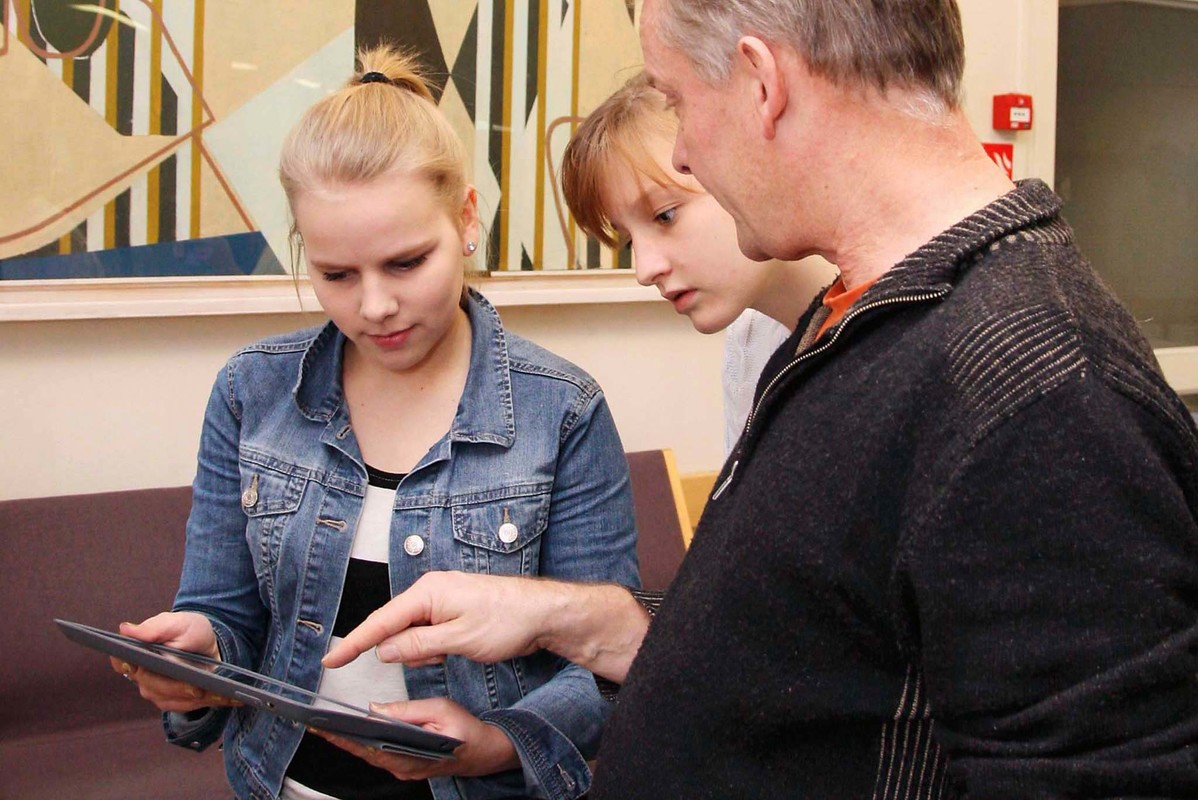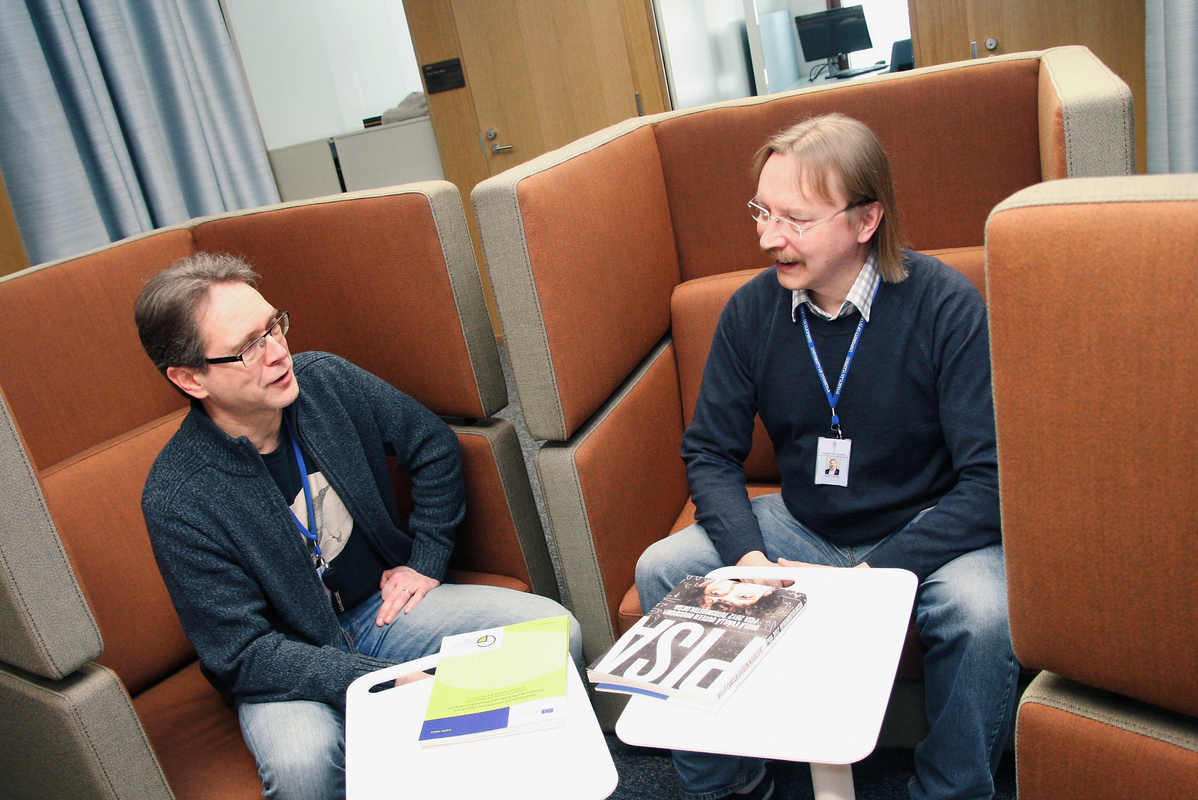Career planning skills
PISA study: Finnish students learn career planning skills already at school
 Career planning skills refer to the ability to find information on prospective study paths or job opportunities, for example. In Finland, the significance of school in learning career planning skills is the highest among the studied PISA countries. One reason for this is that in Finland, unlike in many other countries, student counselling is part of the curriculum and a compulsory subject for everyone. This means that each student has an opportunity to learn career planning skills they will need later in life. Already in earlier international assessments, Study counselling included in basic education has been found as one of the major strengths of Finland.
Career planning skills refer to the ability to find information on prospective study paths or job opportunities, for example. In Finland, the significance of school in learning career planning skills is the highest among the studied PISA countries. One reason for this is that in Finland, unlike in many other countries, student counselling is part of the curriculum and a compulsory subject for everyone. This means that each student has an opportunity to learn career planning skills they will need later in life. Already in earlier international assessments, Study counselling included in basic education has been found as one of the major strengths of Finland.
Participation in different forms of guidance and counselling one of the best among the PISA countries
According to the PISA study, young Finns have actively participated in various career planning activities at school. In light of their responses, they have also learnt career planning skills more extensively than their peers in other countries. In practice, career planning includes discussions with a study counsellor, short practical training taking place at an actual workplace (TET, “työelämään tutustuminen” in Finnish), and visiting work places, educational institutes and different types of VET expos. It should be noted, however, that in international comparison the Finnish students’ skill levels are highly varied: there are extremely active and passive subgroups.
What kinds of skills have the Finnish 9th-graders learnt then? The best results have been achieved in finding information on different education options, writing a CV or a résumé, and preparing for a job interview. However, over 40% of the students reported that they had not learnt any skills related to finding or applying for a job, or financing one’s studies. Nevertheless, the school still played a more significant role in learning such skills compared to learning these outside school.
There were no differences in career planning skills when such factors as the location of school, teaching language, social status, or immigration background were taken into account. Girls had learnt slightly more skills at school than boys but the difference between the genders was not significant. Within-school differences were significantly higher than between-school differences.
Does counselling reach those who need it the most?
But what about those 5000 young people – almost 10% of the age group – who are possibly in danger of becoming socially excluded? Approximately the same percentage of students who answered the PISA 2012 survey reported that they had not discussed with their student counsellor during the entire lower secondary school. They did not feel they had learnt any career planning skills at school, unlike their peers who had discussed with a counsellor. Although TET is a mandatory part of student counselling, about a third of the 9th-graders told they had not taken part in it.
This risk group is characterised by the large number of boys, lower than average perseverance and study motivation, more negative attitude towards problem solving, and also to schoolwork and own learning achievement, worse student-teacher relationship, as well as feeling like an outsider in the daily school life.
According to research findings, counselling that is part of curriculum seems to prevent social exclusion. Nevertheless, it should be investigated more closely whether counselling reaches all the students at risk of becoming socially excluded. Furthermore, more research is needed on how well the student’s subjective right to receive adequate counselling, also stated in the Basic Education Act, is really actualised in Finland. Above all, the schools need resources to recognise and take into account those young people who are in danger of becoming socially excluded, and to enhance the collaboration between various actors to promote young people’s participation.
In PISA 2012, twenty-two participant countries asked their students about the range of their career planning skills and where they had learnt these. In Finland, the survey was answered in Grade 9 during the spring term. At this point the students should have some kind of an idea about what they would do after completing their compulsory education.
Raimo Vuorinen (on the right) works in the Finnish Institute for Educational Research as project manager in the research area 'Education and the world of work'. In 2007-15 he worked as the Co-ordinator of the European Lifelong Guidance Policy Network, ELGPN. Raimo Vuorinen also is Vice-President of the International Association for Vocational and Educational Guidance, IAEVG.
Kari Nissinen is working as a university researcher at the Finnish Institute for Educatonal Research. He is an expert in statistical methods and, among other things, is in charge of quantitative data analyses of international assessment studies (PISA, PIRLS, TIMSS, PIAAC).
Further information:
Sweet, R., Nissinen, K., & Vuorinen, R. (2014). An analysis of the career development items in PISA 2012 and of their relationship to the characteristics of countries, shools, students and families. Jyväskylä, Finland: University of Jyväskylä. ELGPN Research Paper, No. 1. http://www.elgpn.eu/publications/browse-by-language/english/elgpn-research-paper-no.-1-pisa/
Send feedback to writers: raimo.vuorinen@jyu.fi, kari.nissinen@jyu.fi
Photos: Martti Minkkinen
Translation: Melina Aarnikoivu
